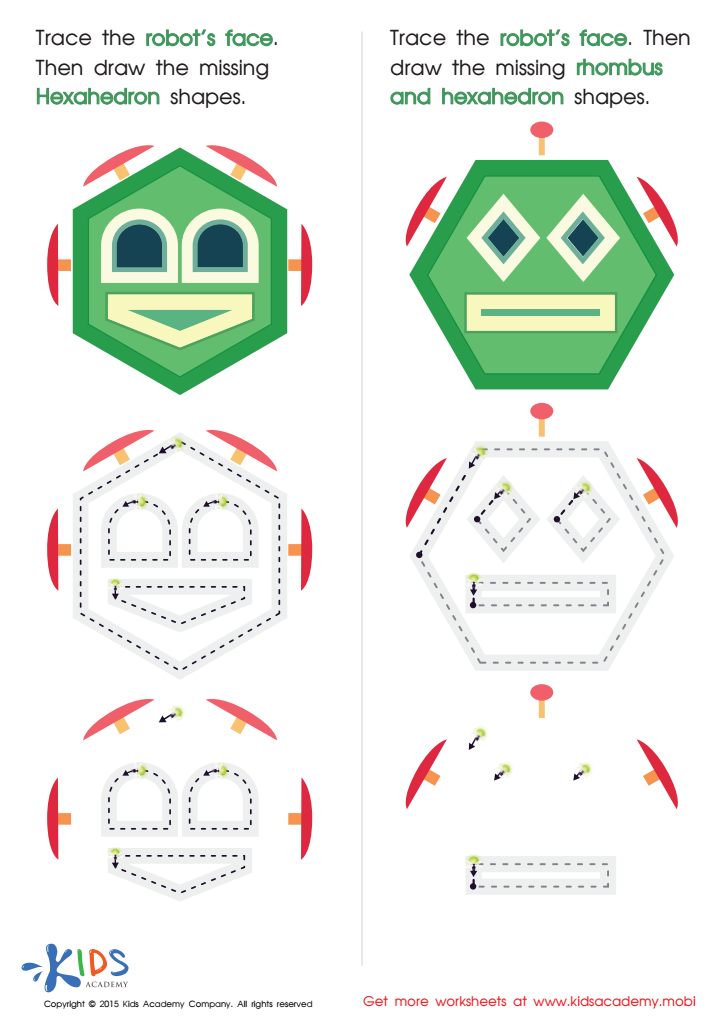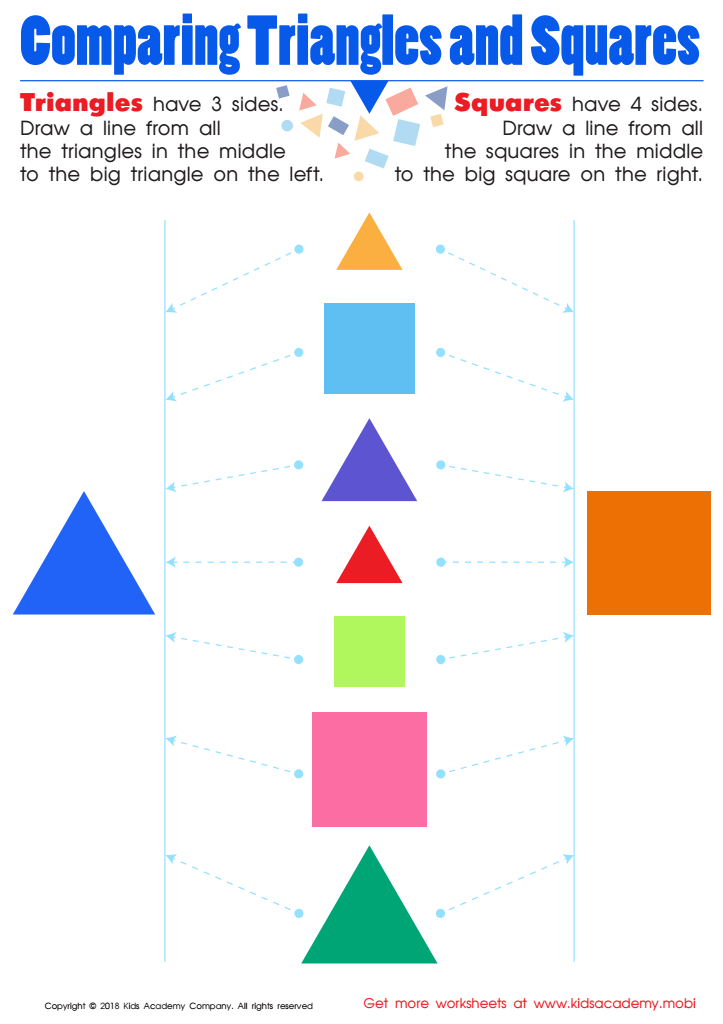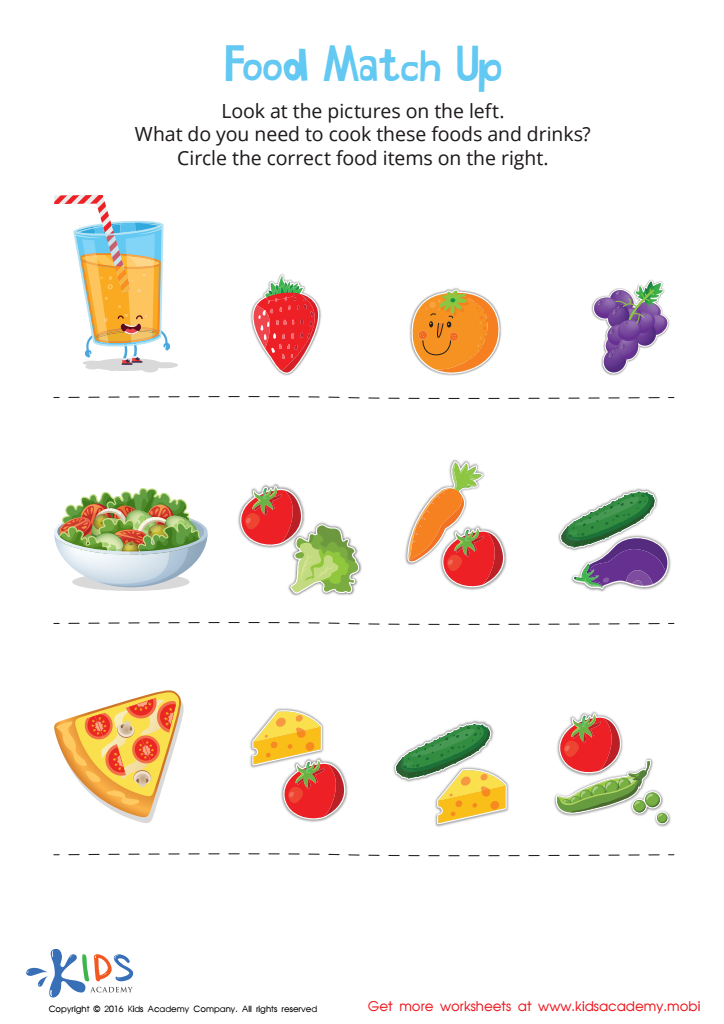Visual discrimination Normal Geometry Worksheets for Ages 5-9
3 filtered results
-
From - To
Explore our engaging Visual Discrimination Normal Geometry Worksheets designed for children ages 5-9! These worksheets foster essential skills, helping young learners identify shapes, patterns, and relationships in geometry through fun and interactive activities. By enhancing visual perception and attention to detail, these resources nurture critical thinking and problem-solving abilities. Each worksheet is carefully crafted to captivate children's interest while promoting cognitive development, ensuring they enjoy learning math concepts. Perfect for classroom or home use, our visual discrimination worksheets create a vibrant and supportive environment for young minds to thrive. Download now and start shaping confident, math-savvy learners today!


Practice Drawing Hexahedrons And a Rhombus Worksheet


Comparing Triangles Squares Worksheet


Food Match Up Worksheet
Visual discrimination is a critical skill for children ages 5-9, as it forms the foundation for essential learning abilities, particularly in geometry and various academic subjects. For parents and teachers, understanding and promoting visual discrimination skills can lead to significant developmental outcomes for young learners.
Firstly, visual discrimination enables children to distinguish between different shapes, sizes, and spatial relationships—crucial components of geometry. Mastery of these concepts aids in the comprehension of mathematical principles, spatial reasoning, and problem-solving abilities.
Secondly, visual discrimination ties directly to literacy learning, as it empowers children to recognize letters, which is foundational for reading. The ability to identify subtle differences is necessary for skills such as distinguishing between similar-looking letters or words, enhancing overall reading development.
Moreover, visual discrimination contributes to children’s everyday life skills, including organizing objects, completing tasks, and even social interactions—helping them understand the world around them. For both parents and educators, fostering strong visual discrimination skills through playful activities, visual games, and engaging learning experiences is essential in supporting children’s cognitive growth and academic success, ultimately laying the groundwork for future achievements in school and beyond.
 Assign to My Students
Assign to My Students





























